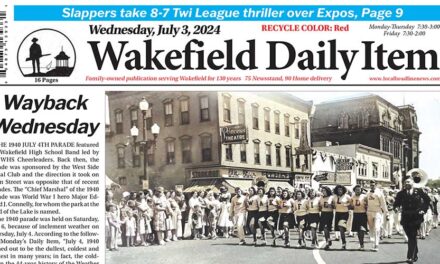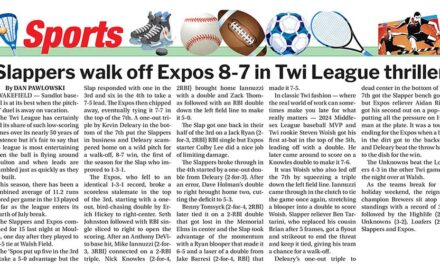By MARK SARDELLA
WAKEFIELD — Walden Road resident Scot McCauley has filed two more Open Meeting Law complaints against town boards, the Town Council and the Planning Board.
One complaint relates to an April 8 Town Council meeting where the board discussed and voted to approve a measure that was listed on the agenda simply as “Climate Leaders.”
The Town Council discussed the matter at this week’s meeting before referring it to Town Counsel Thomas Mullen to draft a response.
McCauley’s other complaint alleges that a quorum of the Planning Board met outside of public view to create an “alternative” map for the MBTA Multifamily Overlay District to be presented at Town Meeting. Monday’s discussion dealt only with the complaint against the Town Council.
Mullen explained that when an Open Meeting Law complaint is filed against a public board, that body must legally acknowledge the complaint in open session and then decide what to do about it. He suggested that the Town Council acknowledge the complaint against them and refer it to him (Mullen) to respond to McCauley and to the state Attorney General, who oversees the Open Meeting Law.
In his complaint against the Town Council, McCauley outlines his concerns.
“On April 23 I was alerted to a Town Council meeting that took place on April 8, 2024 at which a new climate initiative grant program for the town, simply stated as “Climate Leaders” on the public agenda, was proposed by outgoing Council Member Julie Smith-Galvin,” McCauley writes.
“This program, when passed on a 5-2 vote by Town Council that night committed the town to be compliant in an extensive, expansive and expensive Green Initiative programs called Climate Leaders,” McCauley continues. “The program requires all municipal fleet, operations and facilities to be at Zero Carbon neutral by the year 2050 which will cost the town of Wakefield’s taxpayers millions of dollars over the next 24 years.”
McCauley alleges that the agenda item “Climate Leaders” failed to provide “any type of content that would give the average person sufficient information as to what was to be talked about or voted on or to want to participate in discussion that evening.”
In his complaint, McCauley contends that the enormous financial burden on the taxpayers was not disclosed in advance. He notes that two of the Town Councilors “vocally expressed concern and anger that they did not know anything about what the agenda item was.”
At this week’s meeting, Town Councilor Edward Dombroski asked Mullen if he thought that the term “climate leaders” on the agenda was sufficiently descriptive to satisfy the law.
Mullen said that he would have to look into it further, but noted that all that’s really required is to briefly list on the meeting agenda the item to be discussed.
“On the other hand,” Mullen added, “if it’s so obscure that a reader of average intelligence couldn’t figure out what the board is going to do, that’s a problem. So the real questions is whether the term ‘climate leaders’ on the agenda was sufficient to put the public on notice.”
Mullen said that part of his analysis of the issue will be the fact that the town typically couples background “meeting materials” with the agenda.
“If those materials sufficiently identify what ‘climate leaders’ are,” he said, “I think taken together the two things more than satisfy the purpose of the statute.”
Dombroski said that he thought that the issue should have been discussed at one meeting and voted at a subsequent meeting.
“I didn’t know what ‘Climate Leaders’ was until the day of the meeting,” he said.
Councilor Michael McLane asked if it was required to explicitly state on the agenda that a vote was anticipated.
Mullen said that all that is really required is to identify the item to be discussed.
“The issue here is the familiarity of the term ‘Climate Leaders,’” Mullen said. “If it’s well-known, then there’s no need to define it.” He reiterated that if it’s not well-known, but the meeting materials are sufficient to describe it, “That’s probably adequate. If it’s poorly understood and the meeting materials were not posted at the same time or were inadequate, it’s a problem and should have been done differently.
“At worst,” Mullen concluded, the board could “just do it over.”





